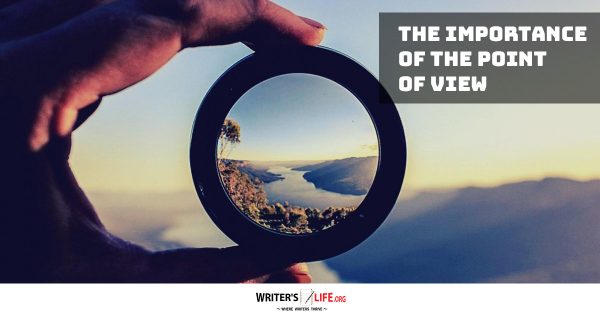- How To Tackle Jealousy In Creative Writing
- Common Submission Mistakes
- How To Stop Your Blog Becoming Boring
- The One Thing Every Successful Writer Has In Common
- How To Make Yourself Aware Of Publishing Scams
- Why Almost ALL Writers Make These Grammar Mistakes At Some Point
- 5 Tips For Authors On How To Deal With Rejection
- Top Mistakes to Avoid When Writing a Novel
- How to Avoid Common New Writer Mistakes
- 10 Mistakes New Fiction Writers Make
The Importance Of The Point Of View

One of the most critical decisions any writer has to make is whose point of view they are going to tell their story from. The whole relationship between the writer and their story is set when they make this decision.
The viewpoint from which a writer tells a story determines its whole outlook, and each perspective comes with its own devices that can give writers great freedom, but also limit them too.
So how does one decide which point of view to use? Let's take a look at some of the different types.
First person singular. The first person singular point of view gives writers an opportunity to make the story genuinely personal.
The readers will follow the story through a single characters eyes; this can make them feel very bonded to that character and allows the scope to play with the intimacy between reader and character as well as create a sense of immediacy which can help to keep the story moving along.
However, this viewpoint means that only one side of the story is told. The narrator's knowledge of events and the way they see the world is the only opportunity for readers to get what is going on. If the novel has a large cast of other interesting characters, it may be challenging to get readers to have the same connection or identify with them.
Third person limited
Third-person limited tells the story from only one person’s perspective but as if the reader was following them around and observing.
This point of view allows readers to gain a slightly broader perspective while still being permitted to understand the characters innermost thoughts and feelings without being bound to their particular opinions.
This perspective allows the writer to prove the protagonist wrong or reveal biases that the character does not even know that they have. The writer maintains control and authority while still being able to tell the story of one particular individual that the readers follow throughout.
Third person omniscient
Using this viewpoint means that many different characters perspectives are explored. This allows the reader to see many different sides of the story, and to get to know a whole cast of characters on a more intimate level.
However, employing this perspective can mean that the reader has to work harder to make sure they know whose viewpoint they see things from, and if there are too many characters and perspective switches too regularly, it is possible they could become confused, frustrated and unable to follow the story any longer.
Of course, writers are perfectly entitled to choose whichever perspective they wish, and may even want to mix in two or three different views in their story (though be warned this could confuse your reader if not done well). Whatever you chose, it is worth giving some time and consideration to point of view, and experimenting with it to find the best way to tell your story just as it should be told.

Bethany Cadman -author of 'Doctor Vanilla's Sunflowers'

























